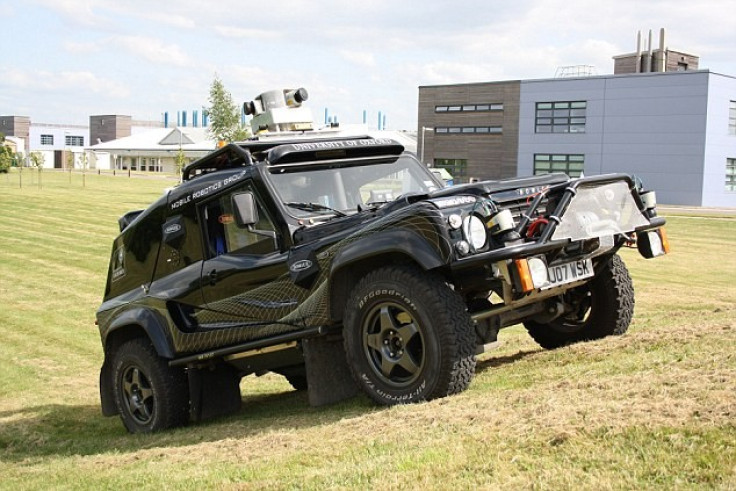Self-Driving Car Developed at Oxford
Scientists have developed a car that can "see" the world around it and drive itself without human intervention, and hope that the technology could lead to safer roads in the future.
The car -- based on a Bowler Wildcat, which is more at home thrashing across the Dakar desert -- uses cameras, radar and lasers to study its environment and drive itself; it's hoped that this technology will lead to improved road safety and even cut congestion.

The project leader, Professor Paul Newman, said the car could drive itself and the technology used could lead to an arms race amongst car manufacturers: "You can imagine one company advertising a model of car which, on average, drives itself for 10 minutes a day and then another manufacturer will come out with one that does 15 minutes."
Self-driving cars are nothing new; models on the market now can park themselves and Google announced last year that its self-driving car had covered more than 140,000 miles on American roads. But what sets the Oxford University project apart is that it relies heavily on an on-board 3D street map, instead of many sensors.
Usually, GPS can only pinpoint a car to a rough location - good enough for satellite navigation, but not for high-speed precision. The Bowler-based project car uses sensors that can pinpoint its location exactly and enable it to respond more safely to its surroundings.
"Think of the impact that computers have had on offices, they have totally transformed them, and the same is going to happen on the roads," Newman said.
"Our long-term aim is to enable a new generation of robotic vehicles that can make the roads safer, less congested, cleaner and personal transport more accessible. We do this by making smarter cars."
The Oxford project has been given £1.4 million in funding by the Engineering and Physical Sciences Research council.
Newman has a vision of cars that take care of the driving for us, letting the owners get on with more important tasks while being driven around. "We need cars that do the thinking and concentrating for you, cars that do not insist you do the driving all the time.
"If the going is slow, why can't I watch the show I missed last night, Skype with the kids, read a book or send that last e-mail and elect the car to handle the drudgery of the trip for me?"
© Copyright IBTimes 2024. All rights reserved.





